The real estate market of Pakistan is rising with exponential profits creating business and investment opportunities on a large scale. At the same time, there is also an increase in scammed housing societies, spreading with a greater pace around the whole country.
In Pakistan, one has to be extra vigilant while dealing with property as a significant amount of money is at the stake, therefore it is important to verify the documents before buying the property.
Although there are many ways through which any property and its papers can be substantiated, ProProperty will provide you a holistic guide of must-consider documents, on the basis of which safety and security of real estate can be claimed.
Verification via Legal Documents:
The traditional process of verifying any property and its documents still remains a favorite hook for many buyers in the market. This revolves around the following papers which if combined, verify the entire property.
Check this list and make sure to receive original copies of these documents as well.
Sales Deed
A sales deed is quite different from a sales agreement.
The buyer needs to understand the difference between both as the former is a legal agreement about transferring an immovable proper from buyer to seller while the latter refers to terms and conditions of a property transaction.
The buyer must obtain a sales deed while buying a property and it is pertinent to get the facts verified from the local land and revenue office while also taking any particular lawyer in confidence.
Mother Deed
The mother deed shows a record of all the previous owners of the property in chronological order.
This is an important document as it shows a track record of the property and also helps you to verify whether the person selling the property is entitled to sell it or not.
Furthermore, this also allows you to have an idea about the historical record of the property. It is always advised to ask for mother deed and not get into any deal until a certified copy from the legal authorities is not provided as an alternate, in case this deed goes missing.
No Objection Certificate
NOC of any property is a vital document for every investor or buyer in the real estate market.
This allows the buyer to safely invest their money worth millions and trillions while guaranteeing the legality of the investment.
Nowadays, commercial and residential projects with approved plans and issued NOCs hold a different market rate than one lacking this.
The departments like RDA in Rawalpindi, CDA in Islamabad, and LDA in Lahore can be approached in this regard which will further cement your legal catalog of property papers.
Bank Approval Certificates
In modern times, the practice of using bank loans for buying property has intensified as it saves you a lot of trouble from a legal perspective.
In this regard, the banks provide approval documents after checking and verifying the legal status of the house.
So, if you’re buying a home financed by a bank you need to ask for this document from the buyer which would also help you signify that the property has already been verified from every angle and you need not give yourself a pain.
Approved Property Plan
If you’re purchasing a ready-made property you need to understand that there has to have a property plan for its construction.
The local administrative authorities authorize the construction before it starts, therefore the buyer must ask for a proven property plan from the seller and verify it with the structure he is planning to purchase which will save him from any possible hindrances in the future.
Encumbrance Certificate
This certificate refers to the record of all the mortgages and home loans.
The buyer yet again needs to ask for this certificate as its availability will verify mortgages and home loans have been already paid and no more amount is left to be paid.
This document also provides information on all the due transactions and monetary issues which will also aid the buyer if he is interested to purchase the property with a remaining mortgage period.
Property Tax Receipts
Verification of tax receipts is another important process as it is mandatory to submit annual property tax as designed by the government.
While buying the property, it is important to verify this document and make sure there are no outstanding taxes, every tax receipt is up to date and no arrears are left.
This will let you lead a healthy deal and ensure that no pending taxes are left by the previous owner.
Project Completion Certificate
As a part of the construction permit process, the house building authorities of every province allocate a project completion certificate that claims the property has been constructed on the principles defined by development authorities and municipal corporations.
The buyer must give attention to this document as all the relevant departments are connected with this certificate, therefore it is a worth-obtaining document while locking a deal.
Power of Attorney
This is a conditional document that is required if the person selling any piece of land or house is not the owner of that property.
The buyer needs to cross-check ownership of property with the person he is purchasing from in relevance to the Mother Deed.
Careful attention must be given whenever anything comes with relation to ownership, hiring a lawyer or an expert is always advised to reduce any chances of confusion.
Conclusion
The aforementioned documents checklist needs to be verified, cross-checked, and attested by relevant departments before making any deal. It is worth mentioning that the legal status of any property is more important than its physical on-ground status because a single glitch in a single document can cost you a lot.
ProProperty suggests that the above-mentioned documents must be proofread closely while seeking help from any legal expert which will further cement the originality of these documents ultimately making your property more valuable and reliable in all aspects.
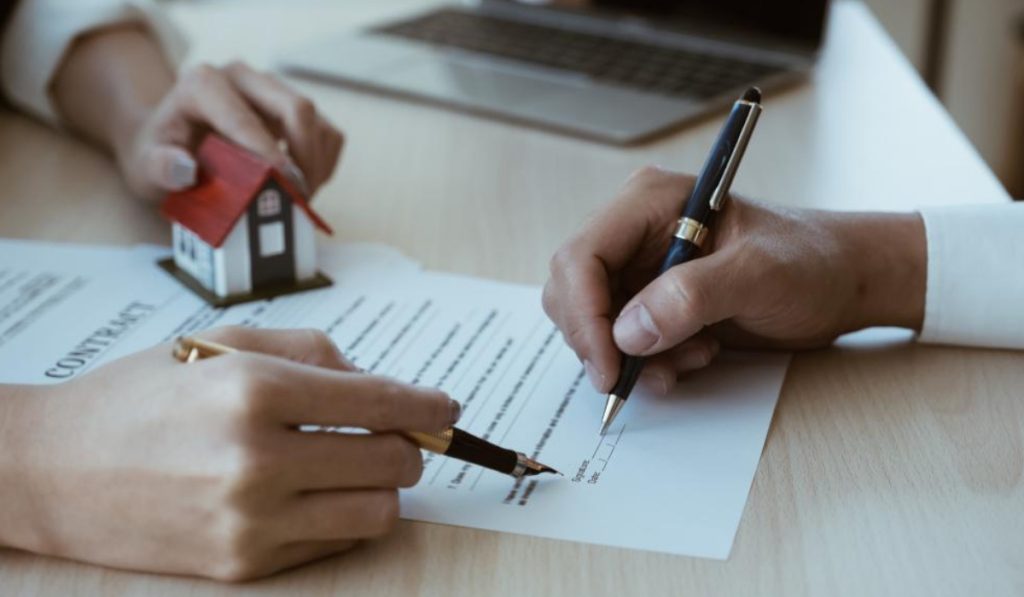

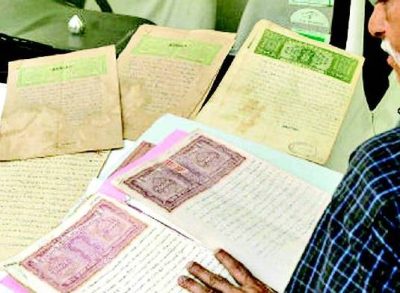

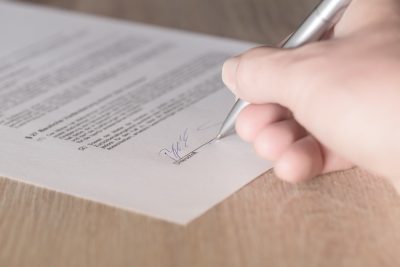

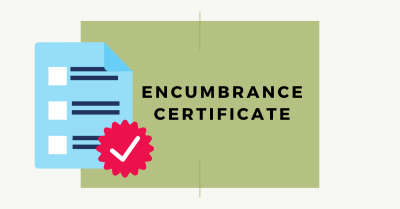
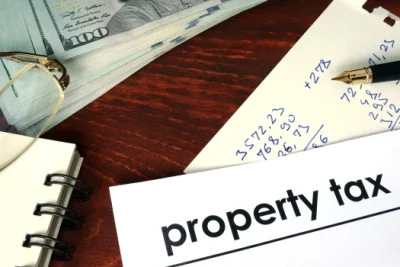
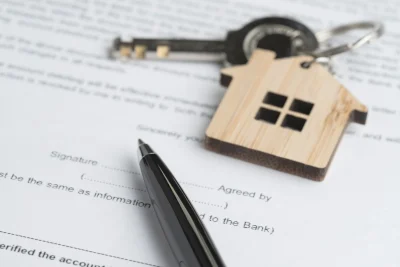
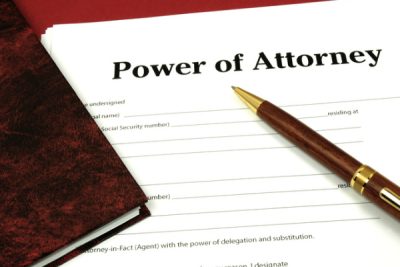
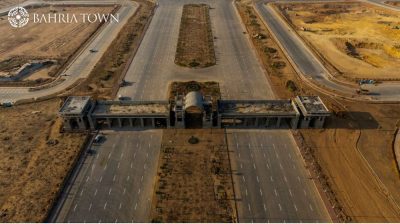








Yes, that’s correct. When buying a property, it’s important to verify all relevant documents and ensure that there are no outstanding taxes or arrears. This can help prevent any legal or financial issues in the future.
Some of the documents that should be verified during the property purchase process include:
Property Title Deed: This document confirms the ownership of the property and should be checked to ensure that there are no discrepancies or legal disputes.
Encumbrance Certificate: This document provides information about any legal dues or charges against the property. It’s important to verify this document to ensure that there are no outstanding taxes or arrears.
Property Tax Receipts: It’s important to check that all property tax receipts are up to date and no arrears are left. This will help ensure that there are no legal or financial issues related to property taxes.
Sale Agreement: This document outlines the terms and conditions of the property purchase and should be carefully reviewed to ensure that everything is in order.
Building Plan Approval: If the property has been constructed recently, it’s important to verify that the building plan has been approved by the local authorities.
By verifying all relevant documents, you can ensure that the property purchase process goes smoothly and that there are no legal or financial issues in the future.
Re
Amazing information
Verifying real estate documents in Pakistan can be a complex and time-consuming process, but it is essential to ensure that the property you are purchasing or selling has clear ownership and title. Here are some steps to verify real estate documents in Pakistan:
Check the Title Deed: The title deed is the most important document when it comes to verifying property ownership. You can obtain a copy of the title deed from the relevant registrar’s office or through a property lawyer. The title deed will contain details such as the name of the current owner, the property’s dimensions, and the registration number.
Verify the Encumbrances: Encumbrances are any legal claims or liabilities against the property, such as mortgages or liens. You can verify encumbrances by obtaining a search certificate from the relevant registrar’s office. This certificate will show any outstanding debts or claims on the property.
Confirm Property Tax Clearance: Before buying or selling a property, it is important to ensure that all property taxes have been paid up to date. You can confirm this by obtaining a property tax clearance certificate from the relevant municipal office.
Check the Mutation Certificate: The mutation certificate is a document that shows the transfer of ownership of the property from the previous owner to the current one. You can obtain a copy of the mutation certificate from the relevant registrar’s office.
Verify the Power of Attorney: If the property is being sold or purchased through a power of attorney, it is important to verify that the power of attorney is valid and has not been revoked. This can be done by obtaining a copy of the power of attorney from a property lawyer and checking it against the relevant laws.
Thank the pro-Pakistan team for giving full information Real Estate Documents i real love how you explain this topic in easy it save my time and resources
After reading the entire article, I found it to be incredibly insightful and helpful for anyone considering investing in real estate in Pakistan. As someone who is interested in the property market, I understand the importance of ensuring that all documents are thoroughly verified before making any deals.
The article stresses the significance of the legal status of a property and highlights the fact that even the slightest discrepancy in documentation can lead to significant financial loss. Therefore, it is crucial to seek the guidance of a legal expert who can assist in verifying the documents and ensuring that the property is genuine.
Overall, I believe that this article provides valuable information for anyone looking to invest in the Pakistani real estate market, and it has certainly helped me gain a better understanding of the process involved in verifying real estate documents in Pakistan.
The process of verifying real estate documents in Pakistan can be difficult due to a lack of a centralized database, complex legal procedures, fraudulent activities, corruption, and a lack of awareness. It is crucial to take the necessary steps to ensure that the documents are legally valid and our investment is safe for future.
this block is very helpful for many students it doing nice work keep it up bro
(https://ehsaasprogramcniccheckonline.com/ehsaas-rashan-program/)
How to Verify Real Estate Documents in Pakistan?
Buying or selling a property is a significant decision for anyone, and it involves a considerable amount of money. Therefore, it is crucial to make sure that the real estate documents are authentic and legally binding. In Pakistan, there have been numerous cases of fraud and fake documents related to real estate. To avoid falling into such traps, it is essential to verify the documents before making any transactions. In this article, we will discuss the steps you need to take to verify real estate documents in Pakistan.
1. Introduction
Real estate transactions involve numerous documents, such as sale deeds, property agreements, power of attorneys, and transfer documents. These documents play a crucial role in determining the ownership and legality of the property. Verifying these documents is necessary to ensure that they are legitimate and legally binding.
2. Importance of verifying real estate documents
Verifying real estate documents is crucial to avoid fraudulent transactions. In Pakistan, fraudulent real estate transactions are common, and many people have lost their hard-earned money due to fake documents. Verifying the documents can prevent such incidents and provide a sense of security to the buyer or seller.
3. Types of real estate documents
Real estate documents can be broadly categorized into two types: ownership documents and transactional documents. Ownership documents include sale deeds, gift deeds, wills, and inheritance documents, which establish ownership of the property. Transactional documents include agreements, contracts, power of attorneys, and transfer documents, which facilitate the transfer of the property.
4. The process of verifying real estate documents
Verifying real estate documents in Pakistan involves the following steps:
Step 1: Identify the type of document
Identify the type of document that needs verification. Different documents may require verification from different offices, depending on their nature.
Step 2: Visit the relevant office
Visit the relevant office where the document was registered or executed. For example, if it is a sale deed, visit the office of the sub-registrar where it was registered.
Step 3: Submit the document for verification
Submit the document along with its photocopy to the relevant officer for verification. The officer may ask for additional documents or information for verification.
Step 4: Wait for verification
Wait for the officer to verify the document. The time required for verification may vary depending on the workload of the office.
Step 5: Collect the verified document
Collect the verified document from the office after the verification process is complete. The verified document will have a stamp and signature of the verifying officer.
5. Common issues with real estate documents
There are several common issues with real estate documents in Pakistan, which include:
Fake or fraudulent documents
Disputed ownership
Incomplete or incorrect documents
Unregistered or illegal documents
To avoid these issues, it is crucial to verify the documents before making any transactions.
6. Conclusion
Verifying real estate documents is a crucial step in any real estate transaction in Pakistan. It can prevent fraudulent transactions and provide a sense of security to the parties involved. By following the steps mentioned above, you can ensure that the documents are authentic and legally binding.
https://ehsaasprogramcniccheckonline.com/category/bisp-program/
this block is very helpful for many students it doing nice work keep it up bro
(https://https://ehsaasprogramcniccheckonline.com/)
i was looking for the permit process. which is very well described in this article””As a part of the construction permit process, the house building authorities of every province allocate a project completion certificate that claims the property has been constructed on the principles defined by development authorities and municipal corporations.
before i red information from below blog.
(https://8171ehsaas.com/)
Hi,Propakistani.pk/
Amazing information. I really enjoyed reading your article. As someone who has been involved in this Pakistan Ehsaas Program for many years, I would like to refer to https://www.ahsaasprogram.pk/
I wish to give you a link that add values your readers related to your topic. Thanks a lot
Kind Regards
CEO Ahsaasprogram.pk
Verifying legal documents is an essential step in the real estate buying process to ensure that you are purchasing a property that has a clear title and is free from any disputes.
Property tax receipts are important legal documents that prove that the current owner has paid all the property taxes due on the property. Check the latest property tax receipts to ensure that there are no outstanding dues.
Thanks for Giving informatio i am very happy with all information ehsaas program
Thank A lot i Am very happy and https://ehsaas8171.com/
https://ehsaasrashan.com/
Property tax receipts are important legal documents that prove that the current owner has paid all the property taxes due on the property. Check the latest property tax receipts to ensure that there are no outstanding dues.
Yes, that’s correct. When purchasing a property, it is crucial to verify all relevant documents and ensure that there are no outstanding taxes or arrears. This verification process is essential to prevent any potential legal or financial complications down the line.
Here are some of the documents that should be thoroughly reviewed during the property purchase process:
Property Title Deed: This document serves as confirmation of the property’s ownership and should be carefully examined to ensure there are no discrepancies or ongoing legal disputes.
Encumbrance Certificate: It provides information about any outstanding legal dues or charges against the property. Verifying this document is crucial to ensure there are no unpaid taxes or pending arrears.
Property Tax Receipts: It is important to check that all property tax receipts are up to date and there are no outstanding dues. This step helps guarantee that there are no legal or financial issues associated with property taxes.
Sale Agreement: The sale agreement outlines the terms and conditions of the property purchase. It should be reviewed meticulously to confirm that all aspects of the agreement are in order and align with your intentions.
Building Plan Approval: If the property has recently been constructed, it is essential to verify that the building plan has received approval from the local authorities. This validation ensures that the construction adheres to legal regulations and standards.
By meticulously verifying all relevant documents, you can ensure a smooth property purchase process and mitigate potential legal or financial issues in the future.
The article “How to Verify Real Estate Documents in Pakistan?” provides essential information and guidance on a crucial aspect of property transactions in the country. Verifying real estate documents is of utmost importance to ensure transparency, protect the rights of buyers and sellers, and prevent potential legal and financial issues.
The article offers a comprehensive overview of the verification process, highlighting key documents that should be carefully reviewed. It emphasizes the significance of checking property title deeds, encumbrance certificates, property tax receipts, sale agreements, and building plan approvals. By following these steps, individuals can make informed decisions and mitigate risks associated with property transactions.
I appreciate how the article breaks down the verification process into clear and actionable steps, making it accessible even to those who may not be familiar with the intricacies of real estate transactions. The information provided is practical and can serve as a valuable reference for both experienced individuals and first-time buyers.
In addition, the article acknowledges the specific context of Pakistan, addressing the country’s unique requirements and regulations. This localized approach enhances its relevance and ensures that readers have accurate and up-to-date information applicable to their situation.
By sharing this knowledge, the article promotes awareness and empowers individuals to protect their interests when dealing with real estate transactions. It plays a vital role in educating readers about their rights and responsibilities, ultimately fostering a more transparent and trustworthy real estate sector in Pakistan.
Overall, “How to Verify Real Estate Documents in Pakistan?” is an informative and well-written article that provides practical guidance to individuals involved in property transactions. It equips readers with the necessary tools to navigate the process with confidence, ensuring the security and legality of their investments.
It is essential to consult with a legal professional to understand the specific legal requirements and implications of granting a power of attorney in real estate transactions 8171 . They can provide guidance tailored to individual circumstances and ensure that the document accurately reflects the property owner’s intentions and protects their interests.
Check Eligibility In Bisp, Ehsaas Program And Ehsaas Rashan Program Through 8171 Web portal
In Pakistan, one has to be extra vigilant while dealing with property as a significant amount of money is at the stake, therefore it is important to verify the documents before buying the property.
Although there are many ways through which any property and its papers can be substantiated, ProProperty will provide you a holistic guide of must-consider documents, on the basis of which safety and security of real estate can be claimed.
Overall, “How to Verify Real Estate Documents in Pakistan?” is an informative and well-written article that provides practical guidance to individuals involved in property transactions. It equips readers with the necessary tools to navigate the process with confidence, ensuring the security and legality of their investments.
Here are the steps on how to verify real estate papers in Pakistan:
Obtain a copy of the title deed or property registration certificate from the seller. This is the most important document that proves ownership of the property.
Contact the local Patwari (Land Records Officer) to inquire about the validity of the deed. The Patwari can check the records to see if the deed is genuine and if the seller is the rightful owner of the property.
Check the property tax records. The property tax records can show if the seller is up-to-date on their taxes.
Inspect the property. Make sure that the property is in good condition and that it is what you are expecting.
Hire a real estate lawyer to review the documents. A real estate lawyer can help you to ensure that all of the documents are in order and that you are not being scammed.
Here are some additional tips for verifying real estate papers in Pakistan:
Be wary of sellers who are unwilling to provide you with copies of the property documents.
Do not pay for the property until you have verified all of the documents.
Be sure to get everything in writing, including the purchase price, the terms of the sale, and the date of possession.
By following these steps, you can help to protect yourself from fraud and ensure that you are buying a property that is free of any encumbrances.
Here are some online resources that you can use to verify real estate papers in Pakistan:
Land Records Management Information System (LRMIS)
This is an online portal that provides access to land records in Punjab.
You can use LRMIS to check the ownership of a property, the property tax records, and the encumbrances on a property.
Sindh Land Records Information System (SLRIS)
This is an online portal that provides access to land records in Sindh.
You can use SLRIS to check the ownership of a property, the property tax records, and the encumbrances on a property.
Here are the steps on how to verify real estate papers in Pakistan:
Obtain a copy of the title deed or property registration certificate from the seller. This is the most important document that proves ownership of the property.
Contact the local Patwari (Land Records Officer) to inquire about the validity of the deed. The Patwari can check the records to see if the deed is genuine and if the seller is the rightful owner of the property.
Check the property tax records. The property tax records can show if the seller is up-to-date on their taxes.
Inspect the property. Make sure that the property is in good condition and that it is what you are expecting.
Hire a real estate lawyer to review the documents. A real estate lawyer can help you to ensure that all of the documents are in order and that you are not being scammed.
Here are some additional tips for verifying real estate papers in Pakistan:
Be wary of sellers who are unwilling to provide you with copies of the property documents.
Do not pay for the property until you have verified all of the documents.
Be sure to get everything in writing, including the purchase price, the terms of the sale, and the date of possession.
By following these steps, you can help to protect yourself from fraud and ensure that you are buying a property that is free of any encumbrances.
Here are some online resources that you can use to verify real estate papers in Pakistan:
Land Records Management Information System (LRMIS)
This is an online portal that provides access to land records in Punjab.
You can use LRMIS to check the ownership of a property, the property tax records, and the encumbrances on a property.
Sindh Land Records Information System (SLRIS)
This is an online portal that provides access to land records in Sindh.
You can use SLRIS to check the ownership of a property, the property tax records, and the encumbrances on a property.
To verify real estate documents in Pakistan, you can follow these steps:
Identify the Relevant Authority: The first step is to determine the appropriate authority responsible for document verification. In Pakistan, the relevant authority for real estate documents is typically the concerned registrar or sub-registrar office where the documents were registered.
Visit the Registrar/Sub-Registrar Office: Once you have identified the specific office, visit it in person. It is recommended to carry the original and photocopies of the documents you want to verify.
Submit the Documents: Present the original and photocopies of the real estate documents to the designated officer at the registrar/sub-registrar office. They will review the documents and compare them with their records.
Verification Process: The officer will check the documents for authenticity, including verifying the signatures, stamps, and other relevant details. They may compare the documents with their records to ensure consistency and accuracy.
Pay the Required Fees: There may be a fee associated with document verification. Inquire about the applicable charges and pay them as required. Obtain a receipt or any other proof of payment.
Receive Verification Certificate: If the documents are found to be genuine and in accordance with the records, the officer will issue a verification certificate or endorse the documents as verified. This certificate serves as official confirmation of the authenticity of the documents.
Note: The process and requirements for document verification may vary depending on the specific jurisdiction and registrar/sub-registrar office. It is advisable to contact the relevant office beforehand to confirm the exact procedure and any additional requirements.
Additionally, hiring a lawyer or a professional consultant specializing in real estate matters in Pakistan can provide guidance and assistance throughout the document verification process.
To verify real estate documents in Pakistan, you can follow these general steps:
Identify the relevant government department: Real estate documents in Pakistan are typically verified by the concerned authority, such as the Revenue Department or the local development authority, depending on the nature of the property.
Visit the relevant department: Once you have identified the appropriate department, visit their office in person. This step may require some research or asking local authorities for guidance to ensure you visit the correct office.
Gather necessary documents: Prepare the required documents for verification, which may include the original documents you want to verify, copies of these documents, your identification, and any other supporting paperwork.
Submit your documents: Present the documents to the relevant officer at the department. They will review and compare the submitted documents with their records.
Pay the verification fee: There may be a fee associated with document verification. Inquire about the fee amount and pay it at the designated counter or cashier within the department.
Wait for verification: The department will conduct their verification process, which may involve cross-checking the documents with their records, confirming ownership, and checking for any discrepancies.
Collect your verified documents: Once the verification process is complete, you will be informed of the outcome. If the documents are deemed authentic, you can collect them from the department along with any verification certificates or stamps they may provide.
It’s important to note that the specific procedures and requirements for document verification may vary depending on the jurisdiction and the type of property involved. Therefore, it’s always recommended to consult with a local real estate expert or lawyer who can guide you through the verification process in Pakistan.
To verify real estate documents in Pakistan, you can follow these general steps:
Identify the relevant government department: Real estate documents in Pakistan are typically verified by the concerned authority, such as the Revenue Department or the local development authority, depending on the nature of the property.
Visit the relevant department: Once you have identified the appropriate department, visit their office in person. This step may require some research or asking local authorities for guidance to ensure you visit the correct office.
Gather necessary documents: Prepare the required documents for verification, which may include the original documents you want to verify, copies of these documents, your identification, and any other supporting paperwork.
Submit your documents: Present the documents to the relevant officer at the department. They will review and compare the submitted documents with their records.
Pay the verification fee: There may be a fee associated with document verification. Inquire about the fee amount and pay it at the designated counter or cashier within the department.
Wait for verification: The department will conduct their verification process, which may involve cross-checking the documents with their records, confirming ownership, and checking for any discrepancies.
Collect your verified documents: Once the verification process is complete, you will be informed of the outcome. If the documents are deemed authentic, you can collect them from the department along with any verification certificates or stamps they may provide.
It’s important to note that the specific procedures and requirements for document verification may vary depending on the jurisdiction and the type of property involved. Therefore, it’s always recommended to consult with a local real estate expert or lawyer who can guide you through the verification process in Pakistan.
Thank A lot i Am very happy and https://8171portal.online/bisp-8171-online-registration/
Verifying real estate documents in Pakistan typically involves a series of steps to ensure the authenticity and legality of the documents. Here’s a general guide on how to verify real estate documents in Pakistan:
Title Investigation: Conduct a thorough title investigation to determine the ownership and history of the property. This involves reviewing the original title documents, including sale deeds, transfer deeds, and mutation documents.
Land Record Verification: Verify the land records at the relevant government office, such as the local Land Revenue Department or the Land Record Authority. Request a copy of the “Fard” (Record of Rights) and “Mutation Register” to confirm the ownership details and any encumbrances on the property.
Encumbrance Certificate: Obtain an encumbrance certificate from the concerned sub-registrar office to check for any mortgages, liens, or pending litigation associated with the property. This document confirms that the property is free from any legal claims.
Physical Verification: Physically visit the property and compare the physical boundaries with those mentioned in the documents. Verify the property’s dimensions, location, and other physical aspects to ensure they match the details provided in the documents.
Verify Approvals and NOCs: Check if the property has obtained the necessary approvals, such as building plan approvals, environmental clearances, and No Objection Certificates (NOCs) from relevant authorities. This step ensures that the property adheres to local regulations and is legally constructed.
Seek Legal Opinion: Engage a qualified lawyer or legal expert specializing in real estate matters to review the documents thoroughly. They can verify the authenticity of the documents and advise on any potential legal issues or concerns.
Consult Relevant Authorities: Contact the relevant government authorities, such as the local Development Authority or the Municipal Corporation, to verify the authenticity of the documents and check if the property is legally registered with them.
Confirm Tax Payments: Ensure that the property owner has paid all applicable property taxes. Request tax receipts or tax clearance certificates from the local taxation office to validate that the property is up to date on tax obligations.
Cross-Check with Multiple Sources: Cross-verify the information provided in the documents with multiple reliable sources, such as government offices, revenue records, and independent experts, to minimize the risk of fraud or misinformation.
Source: https://www.pakijobs.pk/
The Ehsaas Ration Program is a significant initiative undertaken by the government of Pakistan to provide relief and support to those in need. This program aims to ensure food security and alleviate poverty by distributing rations among deserving individuals and families across the country.This post is good enough to make somebody understand this amazing thing, and I’m sure everyone will appreciate this interesting things.Ehsaas Rashan
The scale of the Ehsaas Ration Program is enormous, with millions of people benefiting from its implementation. It operates through an extensive network of distribution centers, ensuring that the rations reach the most vulnerable and marginalized communities.The scale of the Ehsaas Ration Program is enormous, with millions of people benefiting from its implementation. It operates through an extensive network of distribution centers, ensuring that the rations reach the most vulnerable and marginalized communities.Ehsaas8171
The program follows a comprehensive and transparent approach to identify eligible beneficiaries. Through a rigorous assessment process, the government determines those who are most in need of assistance. This ensures that the support reaches those who require it the most, ensuring equity and fairness in distribution.This post is good enough to make somebody understand this amazing thing, and I’m sure everyone will appreciate this interesting things.8171-portal
The Ehsaas Ration Program not only provides essential food items but also aims to improve overall socioeconomic conditions. It strives to empower individuals and families by creating opportunities for self-sufficiency and economic upliftment. Additionally, the program integrates technology and digital systems to streamline the distribution process and enhance efficiency.This post is good enough to make somebody understand this amazing thing, and I’m sure everyone will appreciate this interesting things.Ehsaas Rashan
8171
The Ehsaas Ration Program not only provides essential food items but also aims to improve overall socioeconomic conditions. It strives to empower individuals and families by creating opportunities for self-sufficiency and economic upliftment. Additionally, the program integrates technology and digital systems to streamline the distribution process and enhance efficiency.This post is good enough to make somebody understand this amazing thing, and I’m sure everyone will appreciate this interesting things
Hi,Propakistani.pk/
Amazing information. I really enjoyed reading your article. As someone who has been involved in this Pakistan Ehsaas Program for many years, I would like to refer to https://ehsaasprograms8171.pk/
Kind Regards
CEO ehsaasprograms8171.pk
The 8171 BISP Ehsaas Program has also played a crucial role during times of emergencies and crises. In the face of natural disasters, such as floods or earthquakes, or during challenging times like the COVID-19 pandemic, the program swiftly mobilizes resources to provide emergency cash transfers to affected households. This support helps vulnerable communities cope with the immediate impact of such crises and facilitates their recovery and resilience-building efforts.
https://ehsaas8171.com/
To verify real estate documents in Pakistan, you can follow these general steps:
Identify the relevant government department: Real estate documents in Pakistan are typically verified by the concerned authority, such as the Revenue Department or the local development authority, depending on the nature of the property.
Visit the relevant department: Once you have identified the appropriate department, visit their office in person. This step may require some research or asking local authorities for guidance to ensure you visit the correct office.
Gather necessary documents: Prepare the required documents for verification, which may include the original documents you want to verify, copies of these documents, your identification, and any other supporting paperwork.
Submit your documents: Present the documents to the relevant officer at the department. They will review and compare the submitted documents with their records.
Pay the verification fee: There may be a fee associated with document verification. Inquire about the fee amount and pay it at the designated counter or cashier within the department.
Wait for verification: The department will conduct their verification process, which may involve cross-checking the documents with their records, confirming ownership, and checking for any discrepancies.
Collect your verified documents: Once the verification process is complete, you will be informed of the outcome. If the documents are deemed authentic, you can collect them from the department along with any verification certificates or stamps they may provide.
It’s important to note that the specific procedures and requirements for document verification may vary depending on the jurisdiction and the type of property involved. Therefore, it’s always recommended to consult with a local real estate expert or lawyer who can guide you through the verification process in Pakistan.
The info of these real estate documents are must to know for those who want to invest in any of society in lahore or other city of Pakistan. As housing is one of the backbone sector of this country to so this is really beneficial for everyone who want to invest or want to purchase house or plot land for living.
During emergencies and crises, the 8171 BISP Ehsaas Program has also been essential. The initiative quickly mobilizes resources to give emergency cash transfers to impacted households in the event of calamities like floods or earthquakes, as well as difficult times like the COVID-19 pandemic. With this support, vulnerable communities may more easily deal with the immediate effects of such crises and aid in their efforts to recover and become more resilient.
The purpose of BISP 8171 Check Online Registration is to register those households who are poor and needy, as Pakistan has suffered economic problems due to Corona and 53% of the population has been affected. Unemployment increased as people lost their businesses and could not support their homes.
To verify Pakistan real estate documents in 2023, you can follow these steps. And you also know this method is the latest method
Obtain the necessary documents: Gather all the relevant documents related to the property you want to verify. This may include the sale deed, ownership documents, property tax receipts, and any other related paperwork.
Visit the relevant government authority: In Pakistan, the government authority responsible for property registration and verification is usually the local development authority or the registrar’s office. Visit the respective office that handles property matters in the area where the property is located.
Present the documents: Submit the documents you have gathered to the concerned authority. They will review the documents to verify their authenticity and match them against their records.
Conduct a title search: Request the authority to conduct a title search on the property. This search will confirm the current ownership status and any encumbrances or liens on the property. It will help ensure that the property is legally registered and free from disputes or legal issues.
Pay the required fees: The government authority may charge a fee for verifying the property documents and conducting a title search. Inquire about the applicable fees and make the necessary payment.
Obtain verification or clearance certificate: Once the verification process is complete, the authority will issue a verification or clearance certificate if the documents are found to be authentic and the property is legally registered. This certificate serves as proof of the property’s legitimacy.
Seek legal advice if needed: If you have any doubts or concerns regarding the property’s documentation or need further assistance, it’s advisable to consult a legal professional who specializes in real estate matters. They can guide you through the verification process and provide expert advice.
Please note that the specific procedures and requirements may vary depending on the region in Pakistan. It’s recommended to contact the local government authority or seek legal advice for the most accurate and up-to-date information related to property document verification in your specific area.
Nice info regarding Verify Real Estate Documents in Pakistan by Pro Pakistani
Thanks for sharing this information with us for the Real Estate Documents in Pakistan Thanks Pro Pakistani
I always read your content, you provide nice information, thanks Pro Pakistani Team for providing latest news.
Amazing information I have ever seen
To verify real estate documents in Pakistan, you can follow these general steps:
Identify the relevant government department: Real estate documents in Pakistan are typically verified by the concerned authority, such as the Revenue Department or the local development authority, depending on the nature of the property.
Visit the relevant department: Once you have identified the appropriate department, visit their office in person. This step may require some research or asking local authorities for guidance to ensure you visit the correct office.
Gather necessary documents: Prepare the required documents for verification, which may include the original documents you want to verify, copies of these documents, your identification, and any other supporting paperwork.
Submit your documents: Present the documents to the relevant officer at the department. They will review and compare the submitted documents with their records.
Pay the verification fee: There may be a fee associated with document verification. Inquire about the fee amount and pay it at the designated counter or cashier within the department.
Wait for verification: The department will conduct their verification process, which may involve cross-checking the documents with their records, confirming ownership, and checking for any discrepancies.
Collect your verified documents: Once the verification process is complete, you will be informed of the outcome. If the documents are deemed authentic, you can collect them from the department along with any verification certificates or stamps they may provide.
It’s important to note that the specific procedures and requirements for document verification may vary depending on the jurisdiction and the type of property involved. Therefore, it’s always recommended to consult with a local real estate expert or lawyer who can guide you through the verification process in Pakistan.
Hopefully people will pay a lot of attention to your writing.
The 10th class result, an eagerly awaited moment in the lives of millions of students across the world, marks the culmination of years of hard work, dedication, and perseverance.This critical milestone sets the stage for future academic and career pursuits, making it a defining moment in a student’s life.
http://bisp8171.com/
To verify real estate documents in Pakistan, you can follow these steps:
Identify the Relevant Authority: The first step is to determine the appropriate authority responsible for verifying real estate documents in Pakistan. In most cases, the relevant authority is the concerned land registry office or the local development authority.
Visit the Concerned Authority: Once you have identified the relevant authority, visit their office in person. It’s advisable to bring along the original and photocopies of the documents you want to verify.
Present the Documents: Present the documents to the designated officer at the authority’s office. They will review the documents and compare them against their records.
Cross-Check Information: The officer will compare the information provided in the documents with their records to ensure accuracy. They may also verify the ownership details, property dimensions, and other relevant information.
Seek Verification Stamp or Signature: If the documents are found to be authentic, the officer will likely provide a verification stamp, signature, or any other form of authentication to indicate their validity.
Pay Applicable Fees: Some authorities may charge a nominal fee for document verification. Inquire about the applicable fees and pay them, if required.
Obtain Verification Certificate: After completing the verification process, you may be issued a verification certificate or a receipt confirming the authenticity of the documents. This certificate can be used as evidence of verification when required.
It’s important to note that the exact process and requirements for document verification may vary depending on the jurisdiction and the specific authority involved. Therefore, it’s always recommended to consult the relevant authority or seek legal advice for accurate and up-to-date information specific to your location and circumstances.
https://ehsaasrashan.com/ehsaas-rashan-program/
In many education systems, the 10th class exams cover core subjects such as Mathematics, Science, Social Studies, and Languages (e.g., English, the official language of the country, and sometimes additional regional languages).
To excel in these exams, it’s essential for students to develop good study habits, manage their time effectively, and seek help if they encounter difficulties in understanding any topic. Additionally, practicing with previous years’ exam papers and sample questions can be beneficial for gaining confidence and improving performance.
source: https://10thclassresult.site/
To verify real estate documents in Pakistan, follow these steps:
Obtain the relevant property documents from the seller or their authorized representative.
Visit the concerned registrar’s office or property registration authority.
Cross-check the property details against the official records.
Verify the documents’ authenticity by hiring a lawyer or property expert if needed.
Additionally, you can use TCS Tracking services for secure document transportation and tracking.
Thank you pro-Pakistani team for giving full information Real Estate Documents i real love how you explain this topic in easy it save my time and resources
Verifying real estate documents in Pakistan is a crucial aspect when buying or selling property. One effective way to do this is by obtaining a “Fard” or “Intiqal” document from the local Patwari or land record office. This document provides comprehensive details about the property, including its ownership history and legal status. Furthermore, hiring the services of a professional surveyor can help confirm the property’s boundaries, preventing any disputes in the future. Always take the time to verify every document thoroughly to make a well-informed decision and prevent potential legal issues.
For anyone venturing into the real estate market in Pakistan, verifying property documents is non-negotiable. One essential step is to verify the property’s ownership through a No Objection Certificate (NOC) issued by the concerned authorities. Additionally, examining the “Mutation” document can shed light on any recent changes in ownership or encumbrances on the property. Seeking the assistance of a reputable real estate agent or legal expert can streamline the verification process, giving you the confidence to proceed with the transaction. Remember, a thorough verification is the key to a successful and secure real estate investment.
Ensuring the authenticity of real estate documents is a must for anyone involved in property dealings in Pakistan. To begin the verification process, request the seller to provide the original title deed, which can be cross-checked at the relevant sub-registrar’s office. Simultaneously, verify the property’s tax payment status and any outstanding dues to avoid inheriting any liabilities. Involving a competent lawyer during the verification process can provide an added layer of protection and clarity. Remember, taking the time to verify every document meticulously can safeguard your investment and bring peace of mind.
. Seriously thanks for posting this great information for us.
8123
The Ehsaas Ration Program not only provides essential food items but also aims to improve overall socioeconomic conditions. It strives to empower individuals and families by creating opportunities for self-sufficiency and economic upliftment. Additionally, the program integrates technology and digital systems to streamline the distribution process and enhance efficiency.This post is good enough to make somebody understand this amazing thing, and I’m sure everyone will appreciate this interesting things
Verifying real estate documents in Pakistan is a crucial step to ensure the authenticity and legality of property transactions. Here’s a general guide on how to verify real estate documents in Pakistan:
Obtain the Original Documents: Request the original property documents from the seller or the concerned party involved in the transaction. These documents typically include the title deed, sale agreement, possession letter, and other relevant records.
Visit the Concerned Authorities: Visit the relevant government offices or authorities responsible for real estate transactions in your area. In Pakistan, these offices may include the local land revenue department, registrar’s office, or development authority.
Check the Title Deed: The title deed is a crucial document that proves ownership of the property. Verify the details on the title deed, such as the property’s location, dimensions, and ownership history. Ensure that the names and other details match the information provided by the seller.
Search Records: Many cities in Pakistan have land record management systems (LRMS) or online portals where you can search and verify property details. These portals often provide information about property ownership, boundaries, and mutations. You can search for the property using its plot number, owner’s name, or other relevant details.
Verify Ownership: Cross-reference the property’s ownership details with the records available at the land revenue department or registrar’s office. Confirm that the seller’s name matches the records and that there are no discrepancies or disputes regarding ownership.
Check Encumbrances: Verify if the property has any encumbrances, such as mortgages, liens, or legal disputes. This information can often be obtained from the registrar’s office or land revenue department.
Verification Certificate: In some cases, you may request a verification certificate from the concerned authorities. This certificate confirms the authenticity of the property documents and ownership details.
Legal Opinion: Consider seeking legal advice from a qualified lawyer or legal expert specializing in real estate matters. They can review the documents and provide you with an opinion on their authenticity and legality.
Witnesses and Notarization: Ensure that the property documents are properly witnessed and notarized as required by law. This adds to the authenticity and legal validity of the transaction.
Physical Inspection: Whenever possible, physically visit the property to confirm its existence, condition, and other details mentioned in the documents.
Payment and Documentation: Ensure that all payments are made through proper banking channels, and obtain proper receipts for transactions. Maintain a record of all communication and documentation related to the property transaction.
Remember that the process of verifying real estate documents may vary depending on the location and specific regulations in different parts of Pakistan. It’s advisable to consult with local experts and legal professionals to ensure a thorough and accurate verification process.
Hi, Propakistani
Amazing information. I really enjoyed reading your article. An someone who is involved in this Ehsaas kafalat program for many years, i would like to refer . https://ahsasprogram.pk/
I wish to give you a link that add values your readers related to your topic. Thanks a lot
Thanks this is really informative article and it helped me alot to understand the whole process.The . is described here in detail you can get valuable information from this post also .
Amazing information about the real Estate sector would like to read such articles in the future too. and also refer to read https://bisp8171.com/ I wish it will be helpful for your visitors.
I am very thankful to pro pakistani team for providing complete information of real estate documents, I really like how you explain this topic easily and how to verify real estate documents.
Seeking counsel from a legal expert is crucial in comprehending the precise legal prerequisites and consequences associated with bestowing power of attorney in real estate dealings 8171. These professionals offer personalized advice aligned with each unique situation, guaranteeing the fidelity of the document to the property owner’s wishes and safeguarding their vested interests.
Seeking counsel from a legal expert is crucial in comprehending the precise legal prerequisites and consequences associated with bestowing power of attorney in real estate dealings 8171. These professionals offer personalized advice aligned with each unique situation, guaranteeing the fidelity of the document to the property owner’s wishes and safeguarding their vested interests.
this block is very helpful for many students it doing nice work keep it up bro
this is amazing post waw!
please provide me a mire detailed about Ehsaas & bisp program
Nice post…Thanks to the pro-Pakistan team for giving full information Real Estate Documents i real love how you explain this topic in easy it save my time and resources.
Nice post…Thanks for making such a useful content.
The provided article outlines the importance of verifying real estate documents in Pakistan before making a property transaction. The article emphasizes the significance of legal documents to ensure the safety and security of the investment. It offers a comprehensive guide to the documents that should be considered during the verification process. Here’s a summary of the steps and documents mentioned in the article:
Sales Deed: Differentiate between a sales deed and a sales agreement. Obtain a sales deed when purchasing a property and verify its details with local land and revenue offices. Seek legal advice if necessary.
Mother Deed: Obtain the mother deed, which records the property’s previous owners in chronological order. This document helps verify the seller’s right to sell the property and provides historical information about the property’s ownership.
No Objection Certificate (NOC): The NOC is a vital document that guarantees the legality of the investment. Properties with approved plans and NOCs have different market rates. Approach relevant departments like RDA, CDA, or LDA to obtain the NOC.
Bank Approval Certificates: If the property is financed through a bank loan, request approval documents from the buyer. Bank approval signifies that the property’s legal status has been verified.
Approved Property Plan: For properties under construction, ensure there is an authorized property plan approved by local administrative authorities. This prevents potential issues in the future.
Encumbrance Certificate: Obtain the encumbrance certificate, which lists all mortgages and home loans associated with the property. This document verifies that all dues have been paid.
Property Tax Receipts: Verify property tax receipts to ensure there are no outstanding taxes and all payments are up-to-date according to government regulations.
Project Completion Certificate: A project completion certificate is issued by house building authorities and confirms that the property was constructed in accordance with development standards. It involves various relevant departments.
Power of Attorney: If the seller is not the property owner, verify ownership through a power of attorney document. Cross-check with the mother deed and consider legal advice.
The article underscores that the legal status of a property is more critical than its physical condition. Any discrepancies in the documents can lead to significant issues, so careful verification and legal assistance are recommended.
Amazing Information Estate Documents in Pakistan help full article peoples of pakistan
Telenor Balance Share karne ka Tarika Are you aware of how to access the Telenor Balance code for Share 2023 Telenor Smart Share and how to divide balances between Telenor and Telenor? You can assist your loved ones and relatives by asking them to participate in the balance share.
To verify real estate documents in Pakistan, one should primarily visit the relevant local land registration office or “Arazi Record Center.” Ensure the property’s title is clear by checking for any liens or disputes. Cross-reference the property’s registry with its unique file or “Fard” number 8171 . Additionally, involve a reputable local lawyer to ensure all deeds, NOCs, and taxation documents are genuine and up-to-date. Doing due diligence is essential to avoid potential property disputes or frauds.
YouTube to MP3 Converter Our platform understands the needs of users seeking high-quality audio extraction from YouTube videos. We present you with an innovative and user-friendly YouTube to MP3 converter that addresses the challenges head-on, ensuring a seamless and legal conversion process.
The 8171 BISP Ehsaas Program has also played a crucial role during times of emergencies and crises. In the face of natural disasters, such as floods or earthquakes, or during challenging times like the COVID-19 pandemic, the program swiftly mobilizes resources to provide emergency cash transfers to affected households. This support helps vulnerable communities cope with the immediate impact of such crises and facilitates their recovery and resilience-building efforts.
Me ek gareeb ho or mera grana wala bhi mar gea ha ap mujy ahl karo sadia bibi mera name ha 8171
very good
During emergencies and crises, the 8171 BISP Ehsaas Program has also been essential. The initiative quickly mobilizes resources to give emergency cash transfers to impacted households in the event of calamities like floods or earthquakes, as well as difficult times like the COVID-19 pandemic. With this support, vulnerable communities may more easily deal with the immediate effects of such crises and aid in their efforts to recover and become more resilient.
8267 BISP Code 2023
thank ypu Pro Pakistani Amazing Information Estate Documents in Pakistan help full article peoples of Pakistan